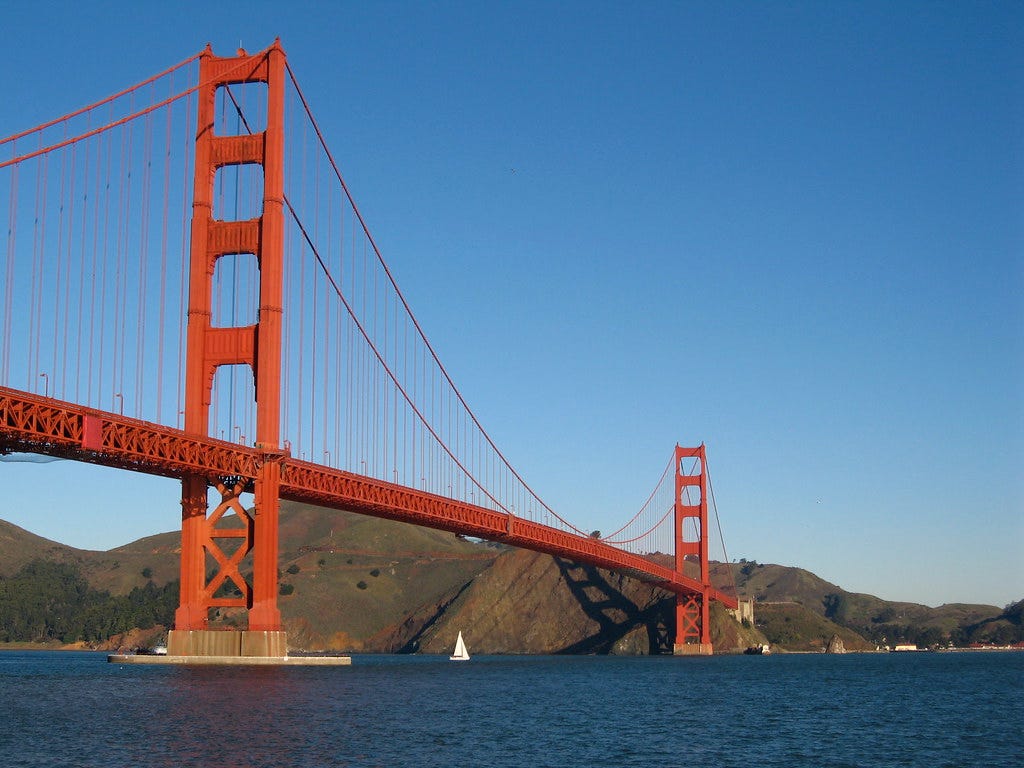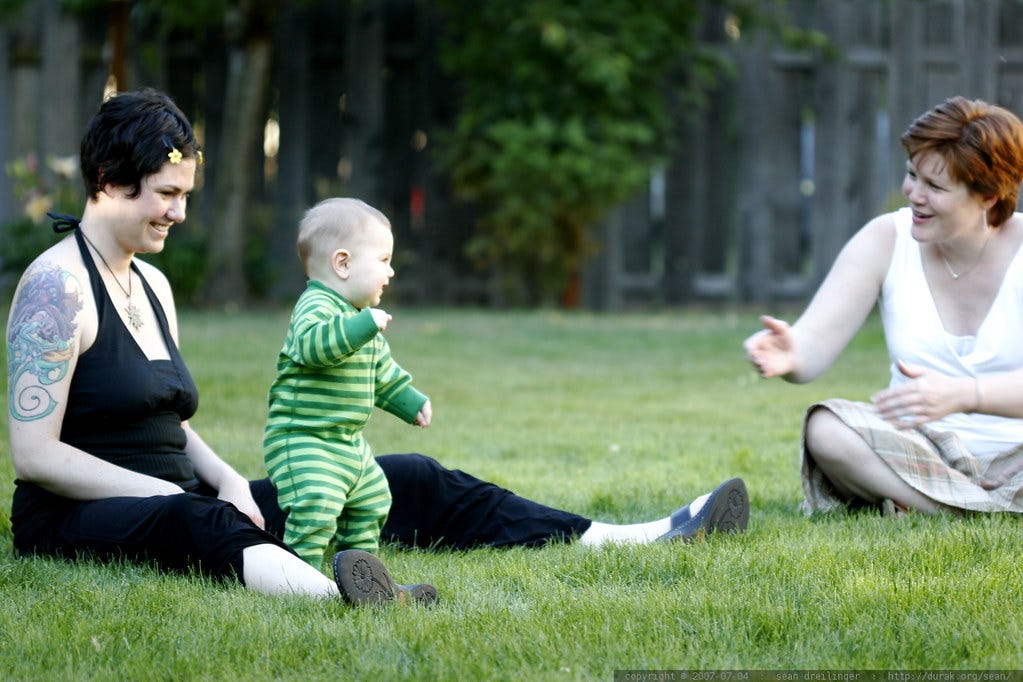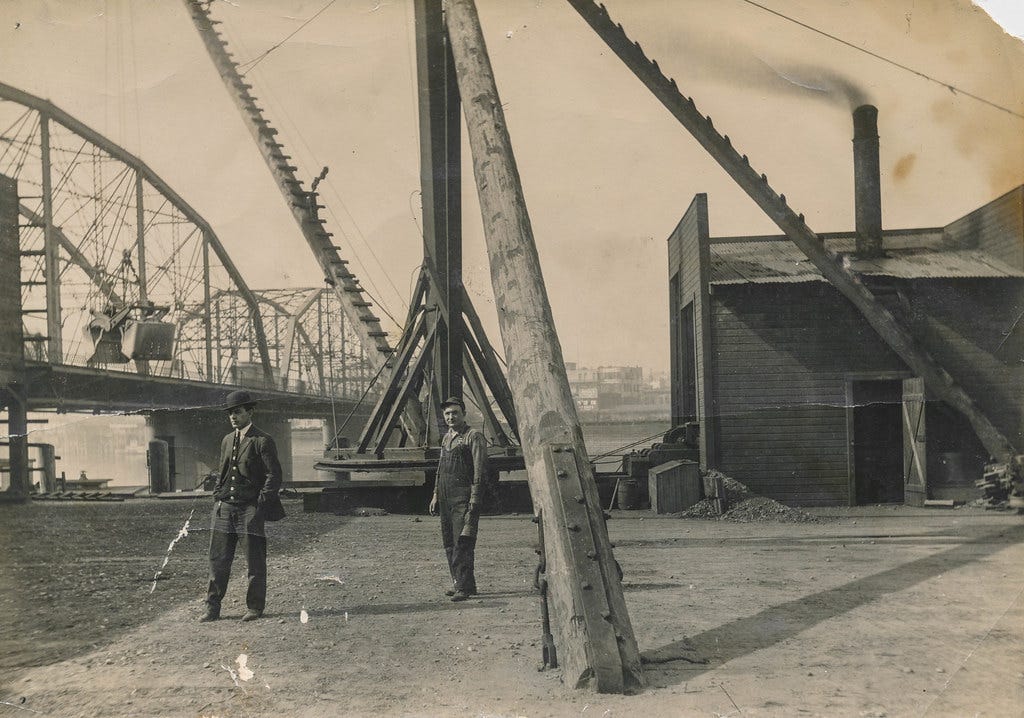Portland, learn from San Francisco
Baby steps won’t save Portland from the stats and headlines that have driven Bay Area residents out of San Francisco.
Upcoming posts
Christina deVillier
Kim Phelps
Part II from Sarah White and Hilary Dumitrescu
Bruce Abernethy
David Frank
Housekeeping
Complete our inaugural readership survey here
Share your favorite Oregon Way post of the year via social media!
To the post!
Kevin Frazier was born in Portland and lived on 12th and Clay in SW. He edits The Oregon Way (forgive him for typos) when he finishes Zoom class at Berkeley Law for the day.

Three years ago, I wrote a letter home during my self-imposed exile to the Bay Area for grad school. I pleaded with Portland to avoid becoming like San Francisco. My hunch was that Portland could take three steps to avoid San Francisco’s increasingly shaky existence as a City on a Hill.
The first step—take care of your infrastructure.
The second—build affordable housing.
The third—reform the City’s charter to make the government more representative and responsive.
In each case, the City has indeed taken baby steps. On infrastructure, there have been some minor improvements—like the Flanders Crossing bridge, which will provide cyclists and pedestrians alike with a safer and more convenient way to get around. On housing, the mayor and commissioners are weighing how best to ease limits on homeless shelters while also considering ways to streamline the approval of affordable housing projects. On governance, the Charter Review Commission recently welcomed a diverse and driven group of Portlanders—chief among the Commission's tasks will be evaluating how best to reform the City’s antiquated system of government.

Baby steps, though, won’t save Portland from the stats and headlines that have driven Bay Area residents out of SF. In a Zoom world, people and companies won’t stay where services are lacking, public safety is absent, and innovation is stifled. As of August, the housing inventory in San Francisco had jumped by 96% year-on-year; it was the largest increase of any major metro area according to Zillow. The pandemic has also accelerated the diaspora of tech companies out of the area; it turns out that high taxes and insufficient city services aren’t a sufficient combo for companies competing for talent around the world.
Both people and companies are looking for a return on their tax dollar—in San Francisco, the absence of returns is evident. According to the San Francisco Chronicle, the City’s opioid crisis “exploded” in 2020. Chronicle reporters tallied that, at its current pace, San Francisco was set to lose at least two people to drug overdoses every day for the entirety of 2020.
Stop Crime SF reported that crime has spiked as well. For instance, homicides in the City increased by 25 percent in July when compared to the year before. This surge in crime was not matched in other cities, according to Stop Crime’s Frank Noto. Given this lack of community safety and wellbeing, it’s not hard to see why so many fled San Francisco when they had the chance.
When I pick up the phone and chat with Portlanders, I’m hearing the same sorts of complaints that sent thousands of San Franciscans packing. Taxes are too high, quality of life is lagging, and too many individuals are being left without the care and housing they need to simply survive.
For Portland to avoid San Francisco’s fate, it must do more than take baby steps. Expectations are high among the young folks moving to the Rose City. Their effective tax rate, as of 2017, was the fourth highest in the nation—23.46 percent (San Francisco’s was 21.88%). Portland won’t meet those expectations by funding the status quo and adhering to a tired playbook of minor policy tweaks.

It’s time for Portland to grow up.
It needs to stop advancing transportation projects that lack community support and fail to meet the expectations of traffic analysts.
It needs a revitalized approach to community safety that recognizes the limits of law enforcement when it comes to treating individuals who need care, not punishment.
It needs a government suited for the 21st century, not one championed in the early 1900s.
No one gets to plan their transition from teen to adult. The pandemic has similarly forced Portland’s hand to go from sleepy city to burgeoning metro area. Portland cannot afford to keep acting like it doesn’t know better—expectations are high and progress has to be made.
To meet those expectations and to make progress, Portland needs to focus on representation, responsiveness, and resourcefulness.
On representation, City Hall should reflect the diversity of Portland and ensure that every neighborhood has someone advocating for their interests.
On responsiveness, the guide to City policy shouldn’t be if it’s “Left” or “Right,” but rather if it helps or hurts. During a crisis, there’s no time for ideology squabbles. People must always come before politics.
On resourcefulness, the City must recognize that there are faith organizations, community groups, and issue advocates that are more closely connected to community members in need; those “context experts” must have a seat at the table.
A bigger government is not necessarily a better government. To avoid San Francisco’s fate, Portland should follow the three Rs.
************************************************
Send feedback to Kevin:
@kevintfrazier
Keep the conversation going:
Facebook (facebook.com/oregonway)
Twitter (@the_oregon_way)
Check out our podcast:



